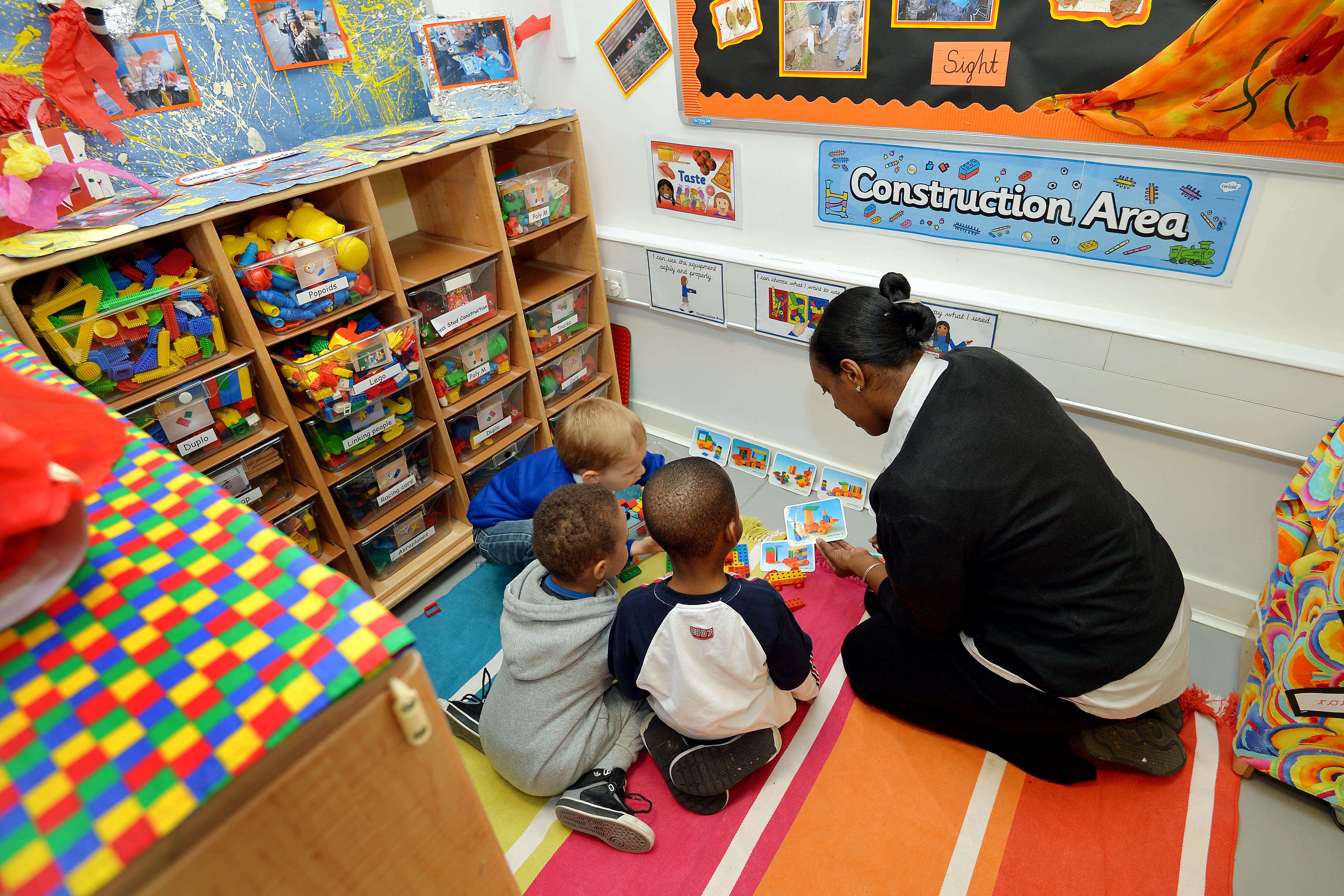Talking to toddlers boosts early brain development – scientists
Researchers found that infants who heard more speech also had more myelin – a substance that makes brain signals more efficient.

Your support helps us to tell the story
From reproductive rights to climate change to Big Tech, The Independent is on the ground when the story is developing. Whether it's investigating the financials of Elon Musk's pro-Trump PAC or producing our latest documentary, 'The A Word', which shines a light on the American women fighting for reproductive rights, we know how important it is to parse out the facts from the messaging.
At such a critical moment in US history, we need reporters on the ground. Your donation allows us to keep sending journalists to speak to both sides of the story.
The Independent is trusted by Americans across the entire political spectrum. And unlike many other quality news outlets, we choose not to lock Americans out of our reporting and analysis with paywalls. We believe quality journalism should be available to everyone, paid for by those who can afford it.
Your support makes all the difference.Talking to toddlers can help advance early brain development, scientists have found.
Researchers from the University of East Anglia (UEA) discovered that two-and-a-half-year-olds who heard more speech in everyday life had more myelin – a substance that makes brain signals more efficient – in language-related areas of their brains.
The researchers said their findings, published in the Journal of Neuroscience, demonstrate how talking to toddlers can shape their developing brain.
Lead researcher Prof John Spencer, from UEA’s School of Psychology, said: “We know that children’s brains develop very rapidly in the first two years of life, with brain volume at about 80% that of an adult brain by the age of two.
The message to caregivers is clear - talk to your baby, your toddler, your child. Not only are they listening, but your language input is literally shaping their brains
“Myelin is made up of protein and fatty substances and forms an insulating layer around nerves in the brain.”
He added: “Imagine you have a hosepipe with lots of holes in it.
“Myelin is like wrapping the hosepipe with duct tape – it insulates neural fibres, bringing more of the ‘signal’ from one brain area to the next.”
For the study, the researchers gave 163 babies and toddlers small recording devices to wear for three days.
They analysed just over 6,000 hours of language data in total, which included words spoken by the children as well as speech from adults.
When the children were asleep, the researchers carefully placed them in an MRI scanner to measure myelin in their brains.
Prof Spencer said: “What we found is that the toddlers who heard more speech in their everyday environment also had more myelin, which is likely to support more sophisticated language processing.
“In other words – talking to your kids is very important in early development as it helps to shape the brain.”
The researchers said their study is one of the first to show that listening to speech is associated with brain structure early in development.
Prof Spencer said: “Prior work showed a similar association in four to six-year-olds, but our findings push this association much earlier in development.
“Indeed, we even found associations between language input and brain structure in six-month-old infants.”
He added: “Although there is still much more to learn about these processes, the message to caregivers is clear – talk to your baby, your toddler, your child.
“Not only are they listening, but your language input is literally shaping their brains.”